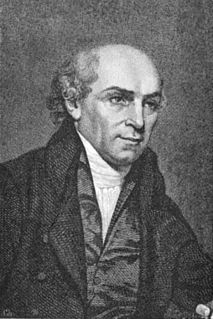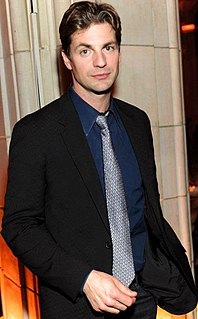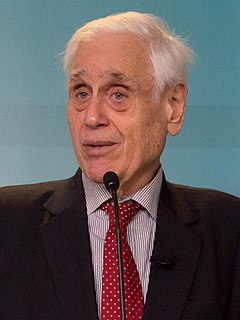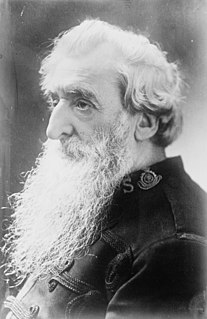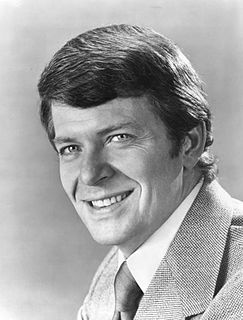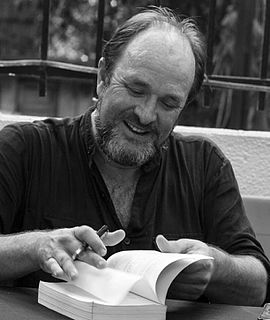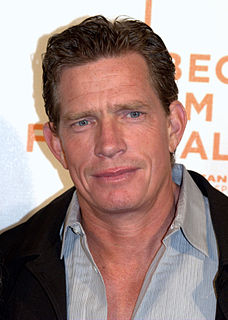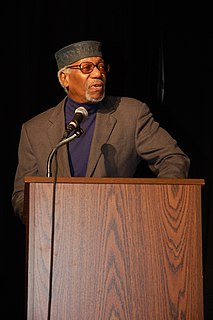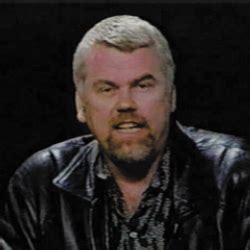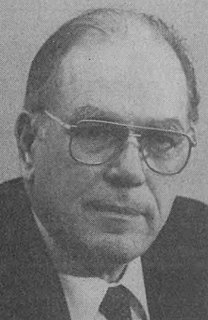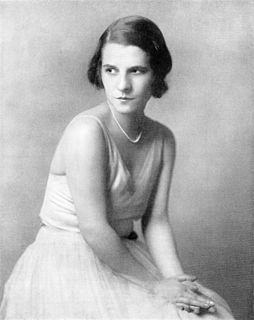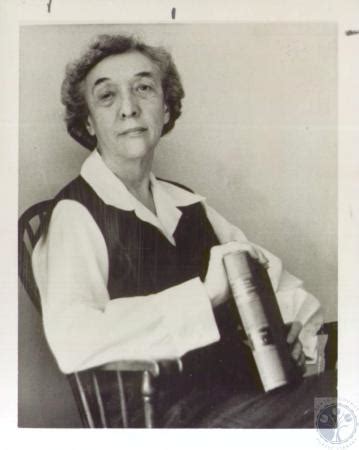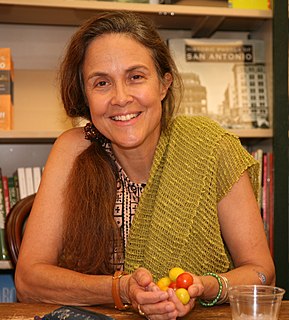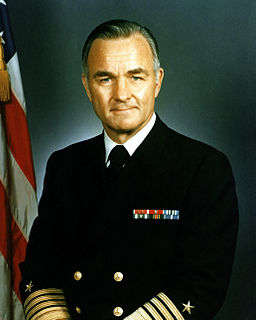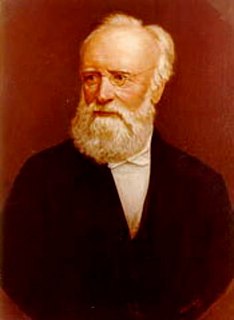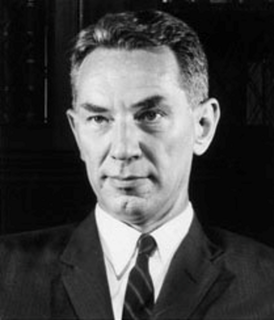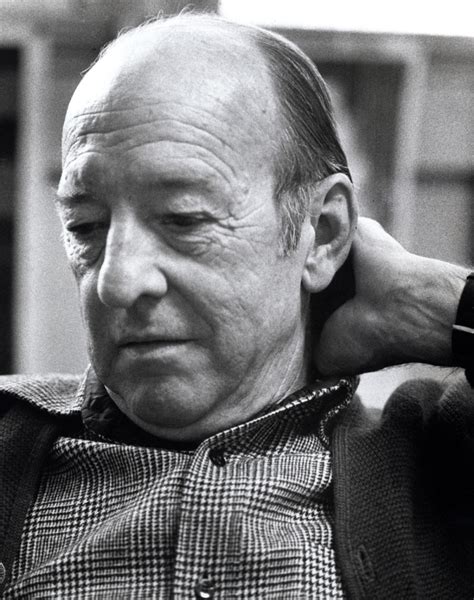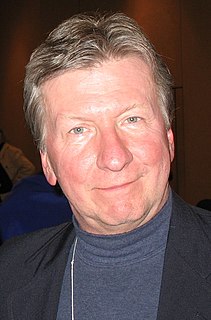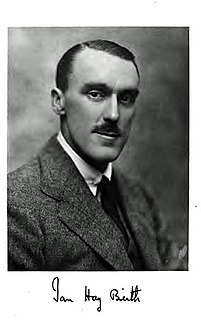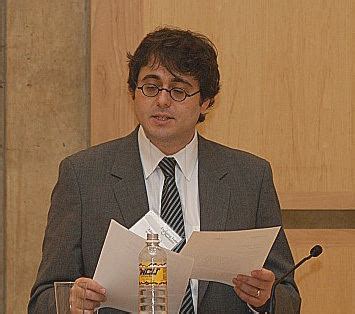Top 778 William Quotes & Sayings - Page 13
Explore popular William quotes.
Last updated on April 20, 2025.
Taxation, the very thing that had triggered the British civil wars, would do so again, this time in America. The taxes may have been different, but the result would once again be disaster. What happened in America was really round two of those wars - the civil war of the British Empire, with the Hanoverians playing the part of the Stuarts, and the Americans the heirs of the revolutionaries, of Cromwell and of William III, the inheritors of a true British liberty, that had somehow got lost in its own motherland.
And Prometheus was flying directly toward them. William Shakespeare shifted uncomfortably in his seat. "Now, I've never been a warrior,and I know little about tactics,but shouldn't we be flying in the other direction?" They were close enough now to see the wide-eyed anpu in the nearest craft. "We will," Prometheus said. "Just as soon as the missiles explode." "Which missiles?" Shakespeare asked. "The two just behind us.
When I first came to America, I went into William Morris Endeavor for a meeting and I was like, "Yeah, I'm from Australia and I do comedy." I think that one of the reasons they signed me is because I wasn't like any other girl. Maybe girls don't get encouraged. The ones who get encouraged to move to Hollywood are the prettiest ones in their hometown of Iowa, or something. Whereas for me, where I come from in the western suburbs of Sydney, no one ever thought professional actors would come from there. Even my own family was like, "No one would want you on a show."
Clay Felker was then - he had - to his credit, he had created New York Magazine, which was the first of the city magazines that covered the city and gave all kinds of advice and all that sort of stuff. And there were copies all over the country by the time he left. He had, however, a view of journalism that was very much, I must say, like Tina Brown's at The New Yorker. You hit 'em hard, fast, give 'em something to talk about the day after the paper comes out, as contrasted with William Shawn, who gave them something to talk about two or three years from then.
When I left England, my hope of India's conversion was very strong; but amongst so many obstacles, it would die, unless upheld by God. Well, I have God, and His Word is true. Though the superstitions of the heathen were a thousand times stronger than they are, and the example of the Europeans a thousand times worse; though I were deserted by all and persecuted by all, yet my faith, fixed on the sure Word, would rise above all obstructions and overcome every trial. God's cause will triumph. (William Carey, quoted in Iain Murray, The Puritan Hope, Banner of Truth 1971, p 140.)
The power of reading a great book is that you start thinking like the author. For those magical moments while you are immersed in the forests of Arden, you are William Shakespeare; while you are shipwrecked on Treasure Island, you are Robert Louis Stevenson; while you are communing with nature at Walden, you are Henry David Thoreau. You start to think like they think, feel like they feel, and use imagination as they would. Their references become your own, and you carry these with you long after you've turned the last page.
One year Halloween came on October 24, three hours after midnight. At that time, James Nightshade of 97 Oak Street was thirteen years, eleven months, twenty-three days old. Next door, William Halloway was thirteen years, eleven months, and twenty-four days old. Both touched toward fourteen; it almost trembled in their hands. And that was the October week when they grew up overnight, and were never so young any more.
The world is too dangerous for anything but truth and too small for anything but love. We can never really love anybody with whom we never laugh. Love is in the giver, not the gift. He told me that once he forgot himself and opened up like a door with a loose latch and everything fell out and he tried for days to put it all back in the proper order, but he finally gave up and left if there in a pile and loved everything equally. thanks to a subscriber! -William Sloan Coffin.
McIntyre hesitated, and for a moment the tall, gray-haired man looked almost boyish. "After all this time...don't you think you could call me William?" Amy and Dan exchanged glances. As fond as they were of him, they couldn't imagine calling their lawyer by his first name. He saw the hesitation on their faces. "Will?" Amy cleared her throat. Dan fiddled with the new GPS. "How about 'Mac'?" "Mac," Dan said, trying out the name. Mr. McIntyre looked wistful. "I always wanted to be a Mac.
For a while, the gay thing seemed like such a big deal. But now, I don't think it is. It's just a comedy-drama about people who live in the United States. It's a slice-of-life. I play a character-that's it. But I was well aware of the gay lifestyle before the show. I've been hit on in a really strong way by gay men who've tried to convert me, and a lot of my heroes are gay. William Burroughs, Lou Reed. Well, I guess Lou Reed is bi. The point is, it's 2002, gay life is no longer that shocking.
I dislike The Exorcist, and I found it a warning sign of the dangers in a furious cinematic talent putting the audience through it (a Hitchcock phrase) without purpose, or without the nagging moral anxiety that activated Hitch. You see, I don't think William Friedkin believes in the Devil, or cares about him. I think he found exorcism a pretext for a gross-out and he calculated there was an audience for it, or a crowd ready to be challenged. Maybe I'm too much of an atheist to stand religion being so thrashed.
The Rolling Stones were an inkling towards an appreciation of the unity of music, dance and words. Any of the black R&B people who had a stage show that involved dancing, music and words did the same thing, except that I thought Jagger's words were good, his music was good and his dancing was good. I spoke to him about Blake and tried to get him to sing [William] Blake's The Grey Monk, to use his words as lyrics. He didn't do it. In the end, I did it myself.
Ladies are always of great use to the party they espouse, and never fail to win over numbers to it. Lovers, according to Sir William Petty's computation, make at least the third part of sensible men of the British nation; and it has been an uncontroverted maxim in all ages, that though a husband is sometimes a stubborn sort of a creature, a lover is always at the devotion of his mistress. By this means, it lies in the power of every fine woman, to secure at least half a dozen able-bodied men to his Majesty's service.
Must you write complete sentences each time, every time? Perish the thought. If your work consists only of fragments and floating clauses, the Grammar Police aren't going to come and take you away. Even William Strunk, that Mussolini of rhetoric, recognized the delicious pliability of language. "It is an old observation," he writes, "that the best writers sometimes disregard the rules of rhetoric." Yet he goes on to add this thought, which I urge you to consider: "Unless he is certain of doing well, [the writer] will probably do best to follow the rules."
I understand that each one of us works at a different speed, and has a slightly different process. I understand that these writers are painstaking, wanting each sentence-each word-to carry weight... I know it’s not laziness, but respect for the work, and I understand from my own work that haste makes waste. But I also understand that life is short, and that in the end, none of us is prolific. The creative spark dims, and then death puts it out. William Shakespeare, for instance, hasn’t produced a new play for 400 years. That, my friends, is a long dry spell.
I will tell you the secret: God has had all that there was of me. There have been men with greater brains than I, even with greater opportunities, but from the day I got the poor of London on my heart and caught a vision of what Jesus Christ could do with me and them, on that day I made up my mind that God should have all of William Booth there was. And if there is anything of power in the Salvation Army, it is because God has had all the adoration of my heart, all the power of my will, and all the influence of my life.
My husband, William Sutcliffe, the writer, is my first reader and in many ways my most important. That initial reading of the manuscript is crucial and irreplaceable and you want them to approach it as someone in a bookshop might, not knowing much about it. So I've got into this pattern of not telling Will anything about the book I'm working on. He often knows nothing about the book I'm working on at all until I give him the whole manuscript and ask him to read it. The book I'm working on at the moment he knows nothing about. No one does.
A favorite science fiction writer of mine is William Faulkner! It was an idea that came to me once, years ago, and I've never quite been able to shake it. This is facetious, on one level at least. There are telepaths in As I Lay Dying. But I think the most compelling thing for me is there are moments with him where I just feel these are not humans talking to each other. These are some hyper-intelligent, yet-to-be-born organisms. The way they look at the past without having any loss of knowledge ? everything that ever happened is still here.
...Dean Mohamet, a Muslim landowner from Patna who had followed his British patron to Ireland. There he soon eloped with, and later marries, Jean Daly, from a leading Anglo-Irish family.... In 1807 Dean Mohamet moved to London where he opened the country's first Indian owned curry restaurant, Dean Mohamet's Hindoostanee Coffee House :...He finally decamped to Brighton where he opened what can only be described as Britain's first oriental massage parlour and became "Shampooing Surgeon to Kings George IV and William IV. "
I've always known that the quality of love was the mind, even though the body sometimes refuses this knowledge. The body lives for itself. It lives only to feed and wait for the night. It's essentially nocturnal. But what of the mind which is born of the sun, William, and must spend thousands of hours of a lifetime awake and aware? Can you balance off the body, that pitiful, selfish thing of night against a whole lifetime of sun and intellect? I don't know.
When I landed in L.A. in early '89, William Morris decided to take me on to see if I could get any jobs. I was cast in a TV movie called Protected Surf, and made $30,000 in four weeks, and I decided I needed to take acting seriously, because I had never made that much money in a year, much less four weeks. That's when I decided I thought I could make a career out of it.
Year after year, author/historian William Loren Katz continues to mine the lodestone of Black culture, and it is simply amazing how often he manages to find new treasures. Here, with the same insight he brought to Black Indians and his other books, the author traces the courageous role of Black women in settling the West. He deftly shows how these pioneering spirits helped stabilize early communities in Texas, Oklahoma, California and elsewhere.
The Kaiser Wilhelm Institute's eugenics studies were initially endowed by Gustav Krupp von Bohlen und Halbach, the head of the Krupp munitions monolith, and James Loeb, of the Kuhn-Loeb banking family. Loeb's relatives, the Warburgs, were banking partners of William Rockefeller, and both families were responsible for setting up the American Harriman family - also movers and shakers in eugenics - in business.
Remember William Blake who said: "Improvement makes straight, straight roads, but the crooked roads without improvement are roads of genius." The truth is, life itself, is always startling, strange, unexpected. But when the truth is told about it everybody knows at once that it is life itself and not made up. But in ordinary fiction, movies, etc, everything is smoothed out to seem plausible--villains made bad, heroes splendid, heroines glamorous, and so on, so that no one believes a word
After [Bill Shawn] was fired, I was going to the YMHA [Young Men's Hebrew Association] on the Upper East Side to do a talk on free speech.I went into a coffee shop to get a piece of pie and a coffee, and I was reading a paper and I hear a voice. And it was -it was not a voice I was familiar with, but I looked across the table and I saw Lilian Ross.And sitting next to her was William Shawn - no tie, needed a shave. His voice was kind of coarse and rather loud. He wasn't drunk, but I was just stunned.
To each of my Nephews, William Augustine Washington, George Lewis, George Steptoe Washington, Bushrod Washington, and Samuel Washington, I give one of my swords or Cutteaux of which I may be Possesed; and they are to chuse in the order they are named. These Swords are accompanied with an injuction not to unsheath them for the purpose of shedding blood, except it be for self defense, or in the defense of their Country and its rights; and in the latter case, to keep them unsheathed, and prefer falling with them in their hands, to the relenquishment thereof.
It would be wrong of me to suppose that just because I can form private mental images, that everyone can. As Francis Galton and William James long ago showed, a small proportion of adults-and some of these extremely intelligent-are unable to form such visual images. Berkeley's point is that it would be equally arrogant for these non-thinkers or non-image formers to claim that everyone is like them in the relevant respect. The temptation to pontificate in that way reveals a narrowness and unwillingness to see the world from another perspective.
Nobody has told Trump that he can't defund sanctuary cities, because the judge William Orrick did not rule that law unconstitutional. This was a pure exercise in nothing more but a refusal to acknowledge the authority vested in Donald Trump as president. This was nothing more than yet another judge essentially saying, "You don't have the power to do anything because I don't acknowledge you as president and I don't acknowledge your oath of office because you're not sane and you're not of sound mind to actually tell the truth when you take the oath of office."
The presently existing global financial and monetary system will disintegrate during the near term. The collapse might occur this spring, or summer, or next autumn; it could come next year; it will almost certainly occur during President William Clinton's first term in office; it will occur soon. That collapse into disintegration is inevitable, because it could not be stopped now by anything but the politically improbable decision by leading governments to put the relevant financial and monetary institutions into bankruptcy reorganization.
Life is getting through the moment. The philosopher William James says to cultivate the cheerful attitude. Now nobody had more trouble than he did -- except me. I had more trouble in my life than anybody. But your first big trouble can be a bonanza if you live through it. Get through the first trouble, you'll probably make it through the next one.
Anya made you kiss her? Yeah. And at our next stop, I'll expect you to deliver. I'll pay, William piped up. After you describe everything about that kiss you two shared. Did you cop a feel? You did, didn't you, you little hussy. I bet you moaned a lot, too. Too late for you to pay, she said in a sing song voice. Strider already offered, and I already accepted. And no, I won't do any describing. You can just imagine how sexy it was. Oh, and Willie. Just so you know, your imagination won't do it justice.
William Shakespeare was the most remarkable storyteller that the world has ever known. Homer told of adventure and men at war, Sophocles and Tolstoy told of tragedies and of people in trouble. Terence and Mark Twain told cosmic stories, Dickens told melodramatic ones, Plutarch told histories and Hans Christian Andersen told fairy tales. But Shakespeare told every kind of story – comedy, tragedy, history, melodrama, adventure, love stories and fairy tales – and each of them so well that they have become immortal. In all the world of storytelling he has become the greatest name.
A boy told me if he roller-skated fast enough his loneliness couldn't catch up to him, the best reason I ever heard for trying to be a champion. What I wonder tonight pedaling hard down King William Street is if it translates to bicycles. A victory! To leave your loneliness panting behind you on some street corner while you float free into a cloud of sudden azaleas, pink petals that have never felt loneliness, no matter how slowly they fell.
My uncle Claude was my favorite uncle he was also my godfather. He and I were really, really close. He used to take me to see cowboy movies all the time when I was a little boy because I loved cowboy movies. He got a cowboy name for me, which was Smokey Joe. So from the time I was three years old if people asked me what my name was I didn't tell them my name was William, I told them my name was Smokey Joe.
My first interaction with William Shakespeare was an American production and there was an actress, playing Puck, who sounded like Mickey Mouse. When she said, I'll put a girdle around the earth in 40 minutes," I was amazed - the idea of Puck traveling around the Earth in 40 minutes was amazing to me. My dad, who was a scientist, I remember him telling me that Sputnik circled the globe in an hour in a half. And I thought, "Wow, Puck is twice as fast as Sputnik."
Time is so strange and life is twice as strange. You must promise me not to live to be too old, William. It if is at all convenient, die before you're fifty. It my take a bit of doing. But I advise this is simply because there is no telling when another Helen Loomis might be born. It would be dreadful, wouldn't it, if you lived on to be very very old and some afternoon in 1999 walked down Main street and saw me standing there, aged twenty-one, and the whole thing out of balance again?
At 2:26 AM on 3 June 1980, Colonel William Odom of the Strategic Air Command alerted National Security Advisor Zbigniew Brzezinski that the US nuclear warning system had detected an imminent 220-missile nuclear attack on the US. Shortly thereafter, the automated system revised its projection from 220 missiles to an all-out attack of 2200 missiles. Just before Brzezinski was about to wake up President Carter to authorize a counterattack, he was told that the 'attack' was an illusion caused by 'a computer error in the system'.
But in reading Shakespeare and in reading about Edward de Vere, it's quite apparent that when you read these works that whoever penned this body of work was firstly well-travelled, secondly a multi-linguist and thirdly someone who had an innate knowledge of the inner workings and the mechanisms of a very secret and paranoid Elizabethan court. Edward de Vere ticks those three boxes and many more. William of Stratford gave his wife a bed when he died [his second best bed].
. . .a sense of humor can be a great help-particularly a sense of humor about (oneself). William Howard Taft joked about his own corpulence and people loved it; took nothing from his inherent dignity. Lincoln eased tense moments with bawdy stories, and often poked fun at himself-and history honors him for this human quality. A sense of humor is part of the art of leadership, of getting along with people, of getting things done.
Stop and think of what happened in America. The melting pot, yeah, it happened. Stop and think of what happened, from the first days of the founding. You have to go back to the Pilgrims. You have to include the Pilgrims in the founding. Why they came. What they learned on the way. What they learned after they got here. The Pilgrims, like everybody else, tried to establish a socialist collective. Bombed out. Didn't work. We know this, the governor wrote about it himself, William Bradford.
The revival of Hebrew, as a spoken language, is a fascinating story, which I'm afraid I cannot squeeze into a few sentences. But, let me give you a clue. Think about Elizabethan English, where the entire English language behaved pretty much like molten lava, like a volcano in mid-eruption. Modern Hebrew has some things in common with Elizabethan English. It is being reshaped and it's expanding very rapidly in various directions. This is not to say that every one of us Israeli writers is a William Shakespeare, but there is a certain similarity to Elizabethan English.
One of the grandest figures that ever frequented Eastern Yorkshire was William Smith, the distinguished Father of English Geology. My boyish reminiscence of the old engineer, as he sketched a triangle on the flags of our yard, and taught me how to measure it, is very vivid. The drab knee-breeches and grey worsted stockings, the deep waistcoat, with its pockets well furnished with snuff-of which ample quantities continually disappeared within the finely chiselled nostril-and the dark coat with its rounded outline and somewhat quakerish cut, are all clearly present to my memory.
Absolutely delightful, at first for its unspoiled picture of late-nineteenth-century Japan as seen through the eyes of three remarkable but very different Americans, [the missionary William Elliot Griffis [1843-1928], the scientist Edward Sylvester Morse [1838-1925], and the writer Lafcadio Hearn], and then for the marvelous reconstruction of how Japan worked on their minds, radically changing their perceptions of the country and the whole relationship between East and West--between the barbarian and the civilized. The book is a tour de force.
The Little Mute Boy The little boy was looking for his voice. (The king of the crickets had it.) In a drop of water the little boy was looking for his voice. I do not want it for speaking with; I will make a ring of it so that he may wear my silence on his little finger In a drop of water the little boy was looking for his voice. (The captive voice, far away, put on a cricket's clothes.) Translated by William S. Merwin
There can be no doubt that the young of today have to be protected against certain poisonous effects inherent in present-day civilization. Five social diseases surround them, even in early childhood. There is the decline in fitness due to modern methods of locomotion; the decline in initiative due to the widespread disease of spectatoritis; the decline in care and skill due to the weakened tradition of craftsmanship; the decline in self-discipline due to the ever-present availability of tranquilizers and stimulants, and the decline in compassion, which William Temple called "spiritual death.
This national argument is usually interpreted as a battle between imperialists led by Roosevelt and Lodge and anti-imperialists led by William Jennings Bryan and Carl Schurz. It is far more accurate and illuminating however, to view it as a three-cornered fight. The third group was a coalition of businessmen, intellectuals, and politicians who opposed traditional colonialism and advocated instead a policy of an open door through which America's preponderant economic strength would enter and dominate all underdeveloped areas of the world.
I had an idea for a medical conspiracy thriller. Since it was non-horror, I didn't want the publishers and editors bringing a lot of baggage - my history as a genre writer in the SF and horror fields, for instance - to the novel when they read it. I wanted them to consider the book solely on its own merits. So I called myself Colin Andrews. I was tired of seeing my books at floor level. Not that Herman Wouk and Phyllis Whitney and William Wharton are bad company, but I wanted to be up at eye level for a change, where people with bad backs could get a chance to see my books.
Today a Scot is leading a British army in France [Field Marshall Douglas Haig], another is commanding the British Grand Fleet at sea [Admiral David Beatty], while a third directs the Imperial General Staff at home [Sir William Roberton]. The Lord Chancellor is a Scot [Viscount Finlay]; so are the Chancellor of the Exchequer and the Foreign Secretary [Bonar Law and Arthur Balfour]. The Prime Minister is a Welshman [David Lloyd George], and the First Lord of the Admiralty is an Irishman [Lord Carson]. Yet no one has ever brought in a bill to give home rule to England!
In the 1970s, for example, I found myself learning to relish the poetry of Andrew Marvell and Sir Thomas Wyatt, and getting a handle on poetry of plainer speech than I had dwelt with heretofore. Which led me into a new appreciation of middle [William Butler ] Yeats, of the short three-beat line and forward-driving syntax, and that paid in, in turn, to a poem like Casualty in Field Work. The traffic, however, was usually the other way. My teaching was animated by what I was reading and being excited by as a poet.
One of the most appalling comments on our present way of life is that at one time half of all the beds in our hospitals were reserved for patients with nervous and mental troubles, patients who had collapsed under the crushing burden of accumulated yesterdays and fearful tomorrows. Yet a vast majority of those people would be walking the streets today, leading happy, useful lives — if they had only heeded the words of Jesus: “Have no anxiety about the morrow”; or the words of Sir William Osler: "Live in day-tight compartments."
I was invited to give the Freshmen Convocation at Florida Gulf Coast University on October 24, 2004. My book The Open Space of Democracy had been selected as one of the "common readers" for the university's 1,050 entering freshmen. On October 6, William Merwin, the president of Florida Gulf Coast, made the decision to "postpone" the convocation. He cited negative statements I had made in print about President Bush. If our colleges and universities are no longer the champions and protectors of free speech, then no voice in this country is safe.
William strode to her. That’s how it’s done. Drink it in. She surveyed the carnage behind him. “Did you have fun?” He showed her his teeth. “Yes. Now they won’t take you anywhere.” Cerise stepped closer to him, so close he only needed to lean in and dip his head and he would kiss her. Since he saved her, maybe he could just grab her and— “That was the stupidest thing you have done since I’ve met you,” she ground out through her teeth. Belay the grabbing.
Abraham Lincoln did have intellectual instincts, a tremendous curiosity on a broad range of subjects, and a near-photographic memory for what he read. He was, at the end of the day, a politician: politics were his heaven, said William Herndon. But Lincoln did take comfort in ideas and books, more so than almost any other president, and he went to books and ideas in moments of perplexity to sort things out. Philosopher, no, but thoughtful and "surprisingly well-read" for his day.
I'm old-fashioned. I think William Blake and people in the Renaissance people were multi. Look at da Vinci, he was involved in science; and Michelangelo was dabbling in poetry. Both of them were painters and sculptors but they also involved themselves with architecture. I honestly don't know what happened in the '60s and '70s. If you sang rock and roll in America at that time or were involved in expressing yourself through music like that, then many thought you couldn't possibly be an artist. That thinking is archaic.
Yes, you make yourself useful, angel boy. Meanwhile, I’ll be in the bathroom.” William’s jet-black hair was dripping wet and plastered to his face. There was a fluffy white towel wrapped around his waist, displaying muscles that rivaled Paris’s own, and a tattooed treasure map that led to his man junk. Looking at his, you could see the makings of a temper so savage anyone who miraculously survived an encounter with him would end up needing therapy. And diapers. “I’ve got to finish deep conditioning my hair.” Or maybe not so savage.
There tends to be this comfortable assumption that nuclear weapons won't be used, but I don't think that's warranted, and I think we should seize the opportunity of this time of stability and cooperation and move towards global elimination of nuclear weapons as indeed people like Henry Kissinger, and William Perry, former Secretary of Defense under Clinton, and Sam Nunn, former Senator, and George Schultz, former Undersecretary of State for Ronald Reagan. All of them recently called for achievement of a nuclear weapon-free world.
One of the reasons [William] Shakespeare is so endlessly fascinating is that you can look at that figure from about 10 different angles: Caliban in Shakespeare's day was probably viewed as a sort of comic, barbarian type, but into the 19th century there were productions where Caliban was the hero. He's a potential rapist of a minor. Is that a good thing? No, it is not. On the other hand, Prospero's got him cooped up in a cave and tortures him if he doesn't do what Prospero wants. Is that a good thing? No. Shakespeare doesn't let you off easy.
Will sat where he was, gazing at the silver bowl in front of him; a white rose was floating in it, and he seemed prepared to stare at it until it went under. In the Kitchen Bridget was still singing one of her awful sad songs; the lyrics drifted in through the door: "Twas on an evening fair I went to take the air, I heard a maid making her moan; Said, 'Saw ye my father? Or ye my mother? Or saw ye my brother John? Or saw ye the lad that I love best, And his name it is Sweet William?" I may murder her, Tessa thought. Let her make a song about that.




